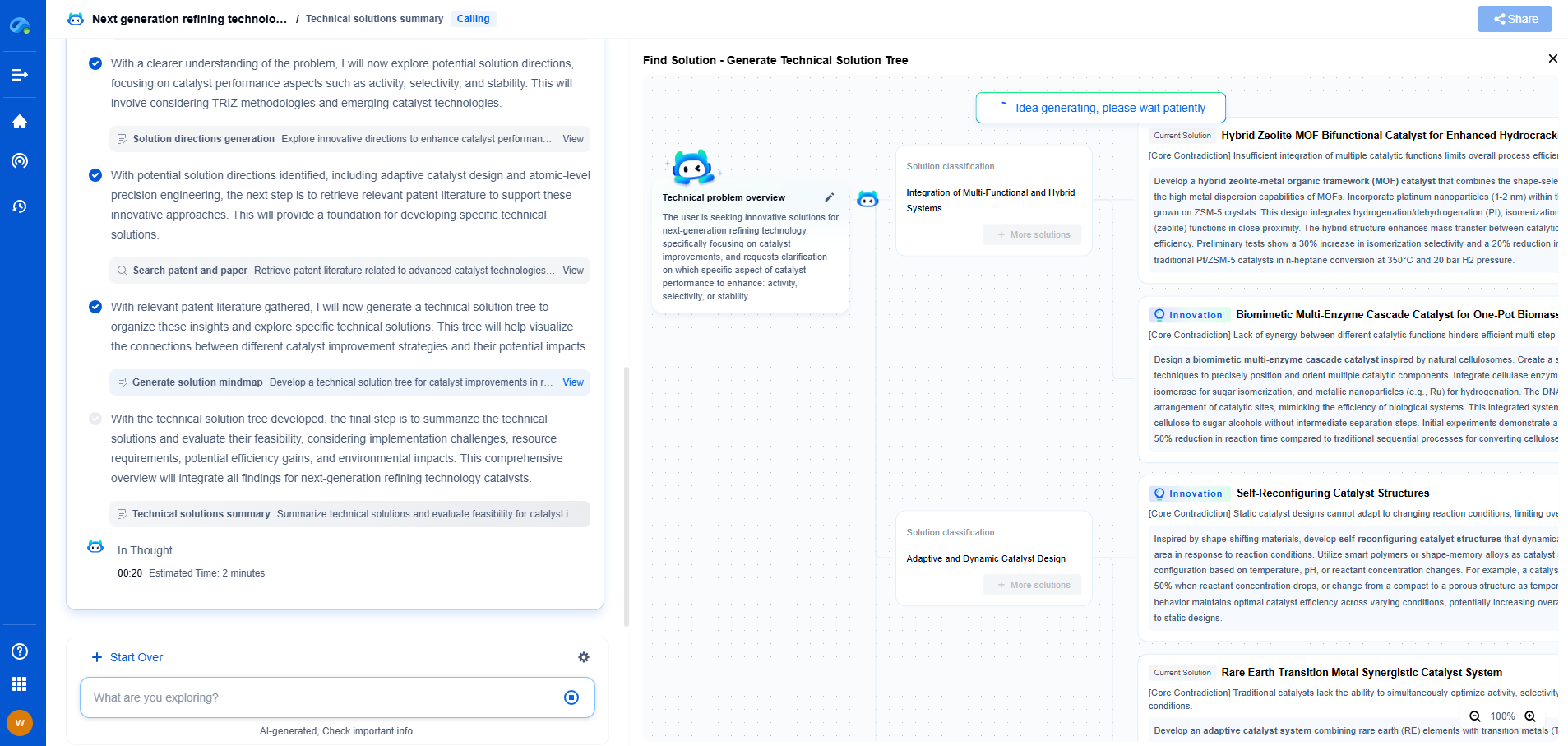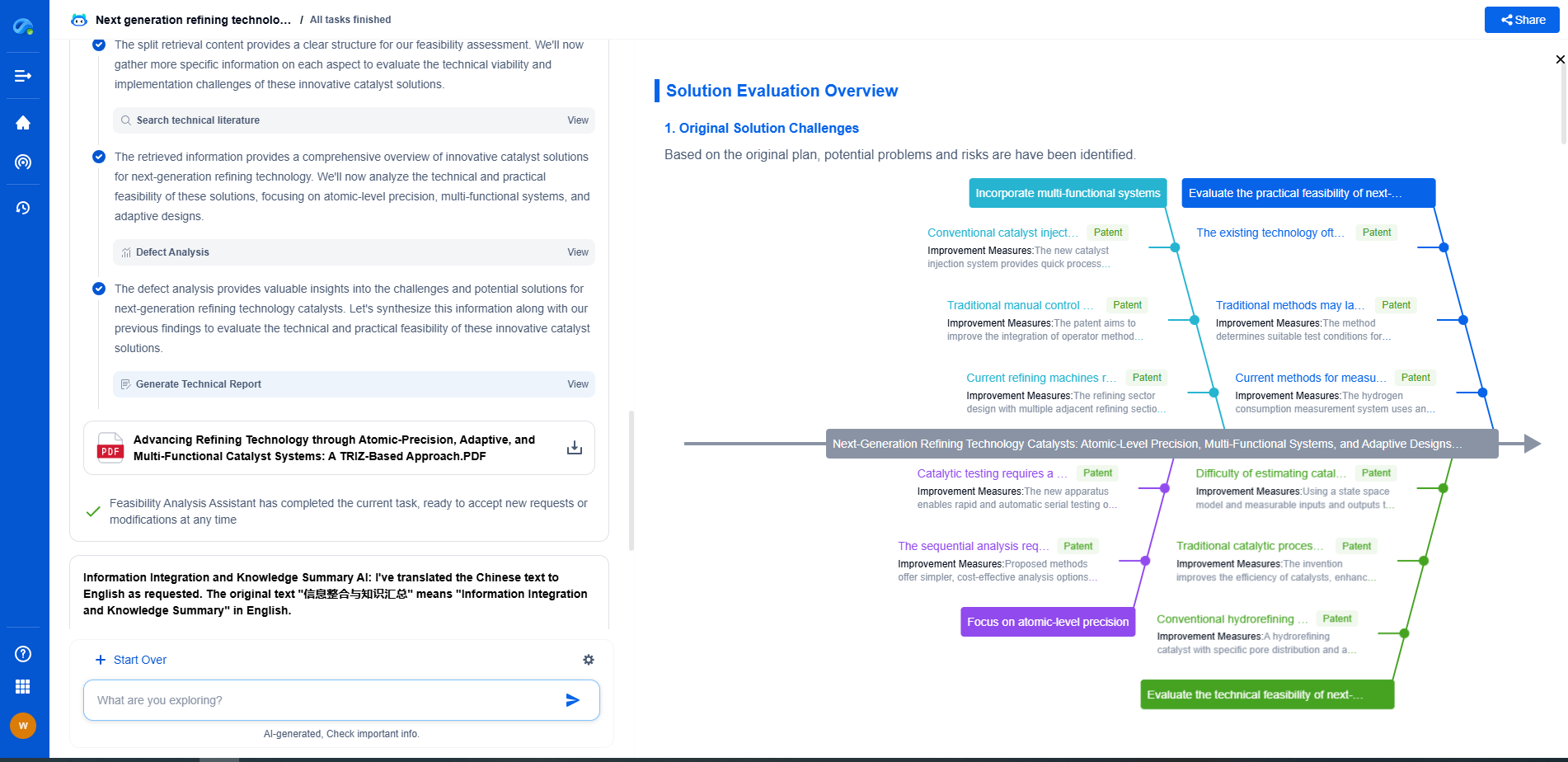Polymer Capacitors: Advantages Over Traditional Electrolytic Capacitors
JUL 9, 2025 |
Understanding Polymer Capacitors
Polymer capacitors, often referred to as polymer electrolytic capacitors, utilize a solid conductive polymer as the electrolyte instead of the liquid or gel electrolytes found in traditional aluminum electrolytic capacitors. This fundamental difference in construction leads to several improved characteristics.
Enhanced Performance and Stability
One of the most significant advantages of polymer capacitors is their superior performance and stability. Unlike traditional electrolytic capacitors, which tend to suffer from leakage currents and gradual degradation over time, polymer capacitors exhibit low equivalent series resistance (ESR) and stable capacitance across a wide range of temperatures. This stability ensures reliable performance in demanding applications, such as power supplies and digital circuits, where consistent operation is crucial.
Improved Lifespan and Reliability
Polymer capacitors offer enhanced lifespan and reliability, primarily due to their solid electrolyte, which does not dry out or leak. In traditional electrolytic capacitors, the liquid electrolyte can evaporate over time, leading to a decrease in performance and eventual failure. Polymer capacitors, however, maintain their integrity and function effectively over a longer period, reducing the need for frequent replacements and maintenance.
Size and Design Flexibility
The compact size and design flexibility of polymer capacitors are particularly advantageous in modern electronic devices, where space is often at a premium. Polymer capacitors are generally smaller than their electrolytic counterparts, allowing for more efficient use of space on circuit boards. This compactness also facilitates the design of smaller, lighter, and more portable electronic devices, which is a crucial consideration in today's consumer electronics market.
Better Frequency Characteristics
Polymer capacitors exhibit excellent frequency characteristics, making them suitable for high-frequency applications. The low ESR and ESL (equivalent series inductance) in polymer capacitors allow them to perform effectively across a broad frequency range. This feature is particularly beneficial in applications such as switching power supplies and high-frequency signal processing, where maintaining signal integrity is essential.
Thermal and Voltage Stability
Another notable benefit of polymer capacitors is their superior thermal and voltage stability. These capacitors can operate efficiently at higher temperatures and provide more consistent performance under varying voltage conditions compared to traditional electrolytic capacitors. This makes them a preferred choice for applications in automotive electronics and other environments where temperature and voltage fluctuations are common.
Environmental Considerations
In addition to their technical advantages, polymer capacitors also offer environmental benefits. The absence of liquid electrolytes in their construction minimizes the risk of leakage and environmental contamination. Furthermore, the longer lifespan of polymer capacitors means fewer replacements are needed over time, reducing waste and the environmental impact associated with disposing of electronic components.
Conclusion
Polymer capacitors present a range of advantages over traditional electrolytic capacitors, including enhanced performance, reliability, and environmental benefits. Their compact size, stability across various conditions, and superior frequency characteristics make them an excellent choice for modern electronic applications. As technology continues to advance, the demand for efficient, reliable, and environmentally friendly components will likely drive further adoption of polymer capacitors in the electronics industry.
Looking to accelerate your capacitor innovation pipeline?
As capacitor technologies evolve—from miniaturized MLCCs for smartphones to grid-scale energy storage devices—so must the way your team accesses critical knowledge.
Patsnap Eureka, our intelligent AI assistant built for R&D professionals in high-tech sectors, empowers you with real-time expert-level analysis, technology roadmap exploration, and strategic mapping of core patents—all within a seamless, user-friendly interface.
Try Patsnap Eureka now and discover a faster, smarter way to research and innovate in capacitor technology.
- R&D
- Intellectual Property
- Life Sciences
- Materials
- Tech Scout
- Unparalleled Data Quality
- Higher Quality Content
- 60% Fewer Hallucinations
Browse by: Latest US Patents, China's latest patents, Technical Efficacy Thesaurus, Application Domain, Technology Topic, Popular Technical Reports.
© 2025 PatSnap. All rights reserved.Legal|Privacy policy|Modern Slavery Act Transparency Statement|Sitemap|About US| Contact US: help@patsnap.com

